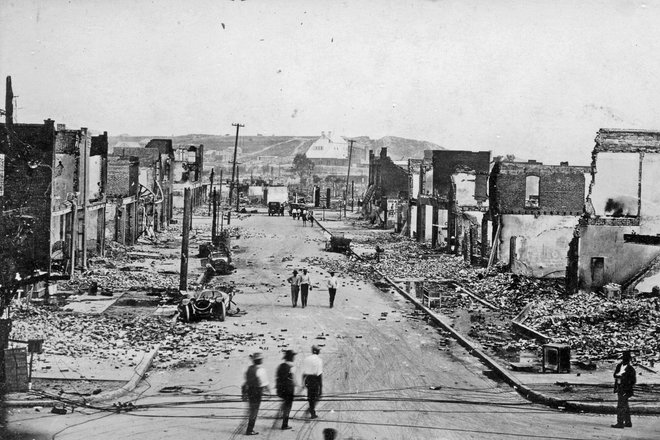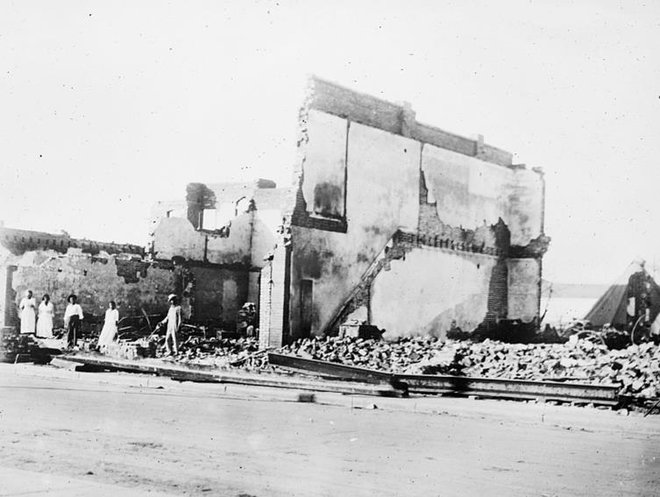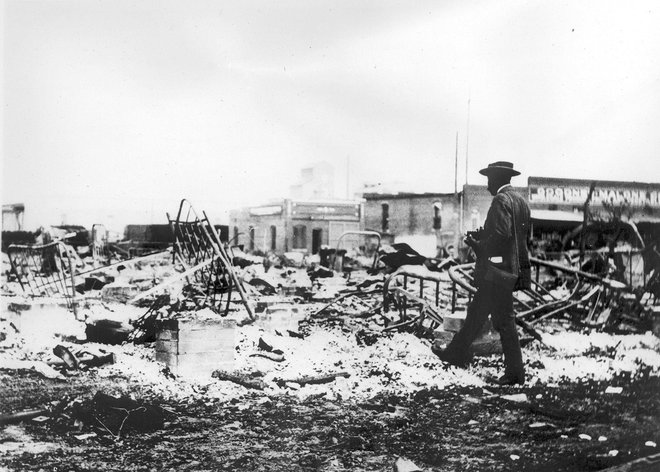Damario Solomon-Simmons, the Chairman of the Justice for Greenwood Foundation, an organization founded by individuals who tragically lost their loved ones in the 1921 Tulsa Massacre, commonly known as a symbol of racial discrimination in the United States, has expressed the pain and neglect experienced by the victims' families.
Highlighting the events that took place in Tulsa, Oklahoma, starting on May 31, 1921, and lasting until the following day, Solomon-Simmons emphasized that the massacre occurred in the town of Greenwood, where the wealthiest black community of that era resided.
Referred to as "Black Wall Street" due to its economic prominence, Greenwood faced escalating tensions as white supremacists from other towns opposed the black community's prosperity. Tragically, the massacre was instigated by false allegations of a black man assaulting a white woman.

Solomon-Simmons criticized the delayed intervention of the state's law enforcement during the massacre and their alleged assistance to racist groups. Furthermore, he noted that the subsequent criminal complaints against the authorities went unanswered.
Contrary to official statements, Solomon-Simmons revealed that the actual death toll in the Tulsa Massacre was significantly higher than reported. In a report submitted by state authorities, it was estimated that at least 1,000 black individuals were killed by white racists, with some victims' bodies still unaccounted for.
Mass graves remain hidden by the state of Oklahoma for over a century to avoid the prosecution of officials involved during that time.
Regarding the investigation into the massacre, Solomon-Simmons criticized the lack of thoroughness by the US Federal Bureau of Investigation (FBI).

He alleged that the FBI's Tulsa report was prepared by white supremacists who supported the massacre, claiming that witnesses and victims' families were never interviewed.
Solomon-Simmons pointed out the lasting impact of the massacre on Greenwood, including housing, education, and employment challenges faced by the black community. Hospitals and clinics destroyed during the violence were never rebuilt, causing profound ongoing effects even after 102 years.
While acknowledging US President Joe Biden's acknowledgment of the Tulsa Massacre, Solomon-Simmons urged him to take further action. He called for increased attention from the FBI and the Department of Justice, particularly in calculating compensation for the families who suffered losses during the massacre.
Solomon-Simmons expressed disappointment with the state of Oklahoma's refusal to provide compensation to the victims' families, citing reluctance to confront racist sentiments within the Tulsa community.

He criticized the mayor's public stance against compensation, urging the Justice Department to thoroughly investigate the Tulsa Massacre and hold those responsible accountable for their actions.
In preparation for future legal actions, Solomon-Simmons and the foundation have traced the family trees of those who lost their lives in the massacre.
Their focus now is on justice and reparations, utilizing websites and various platforms to raise awareness about the impact of the Tulsa Massacre and alleviate the suffering of the affected families.
Highlighting the persistent racism in the United States, especially during election periods, Solomon-Simmons noted that discrimination continues to plague the country, with increasing racial tensions during the tenure of former President Donald Trump.

He stressed the negative effects of racism on the lives of black individuals, evident in various sectors such as social life, education, healthcare, and the justice system.
Discrimination persists, and black Americans are still treated as second-class citizens, leading Solomon-Simmons to fight against these injustices as a lawyer.
The tragic events of the Tulsa Massacre occurred when 19-year-old black shoeshiner Dick Rowland was wrongfully detained for an alleged offense against a white girl in an elevator.
The subsequent clashes between white mobs and black groups quickly escalated, resulting in the loss of 12 lives and widespread destruction.

With the cooperation of local authorities, armed white rebels, along with police and the National Guard, targeted businesses and neighborhoods, notably the Greenwood business district. Numerous homes and businesses were looted and set ablaze throughout the night.
Reportedly, the local authorities hastily buried the victims without keeping official records or allowing proper funeral ceremonies, further obscuring the true extent of the lives lost during the tragic events.